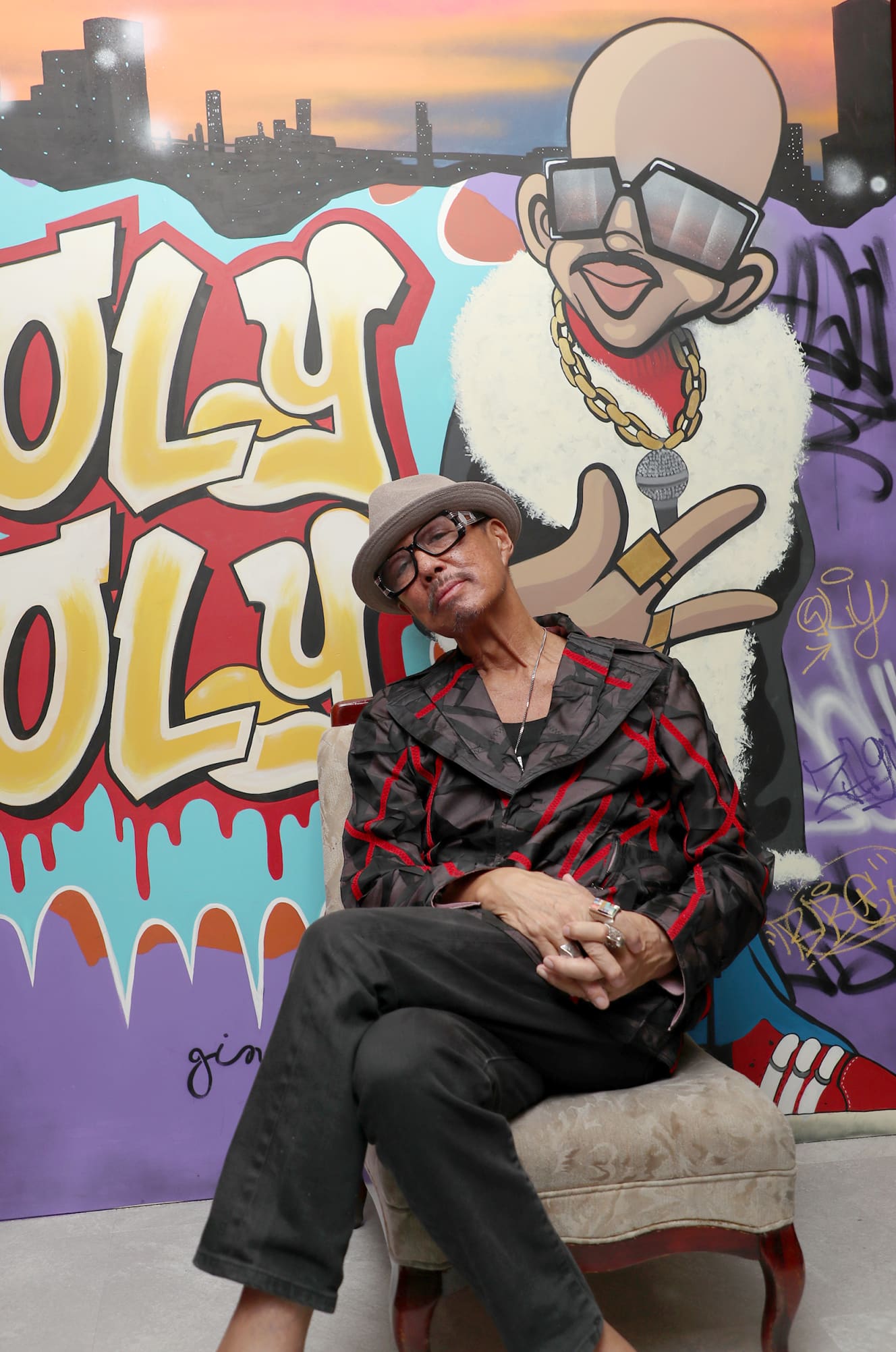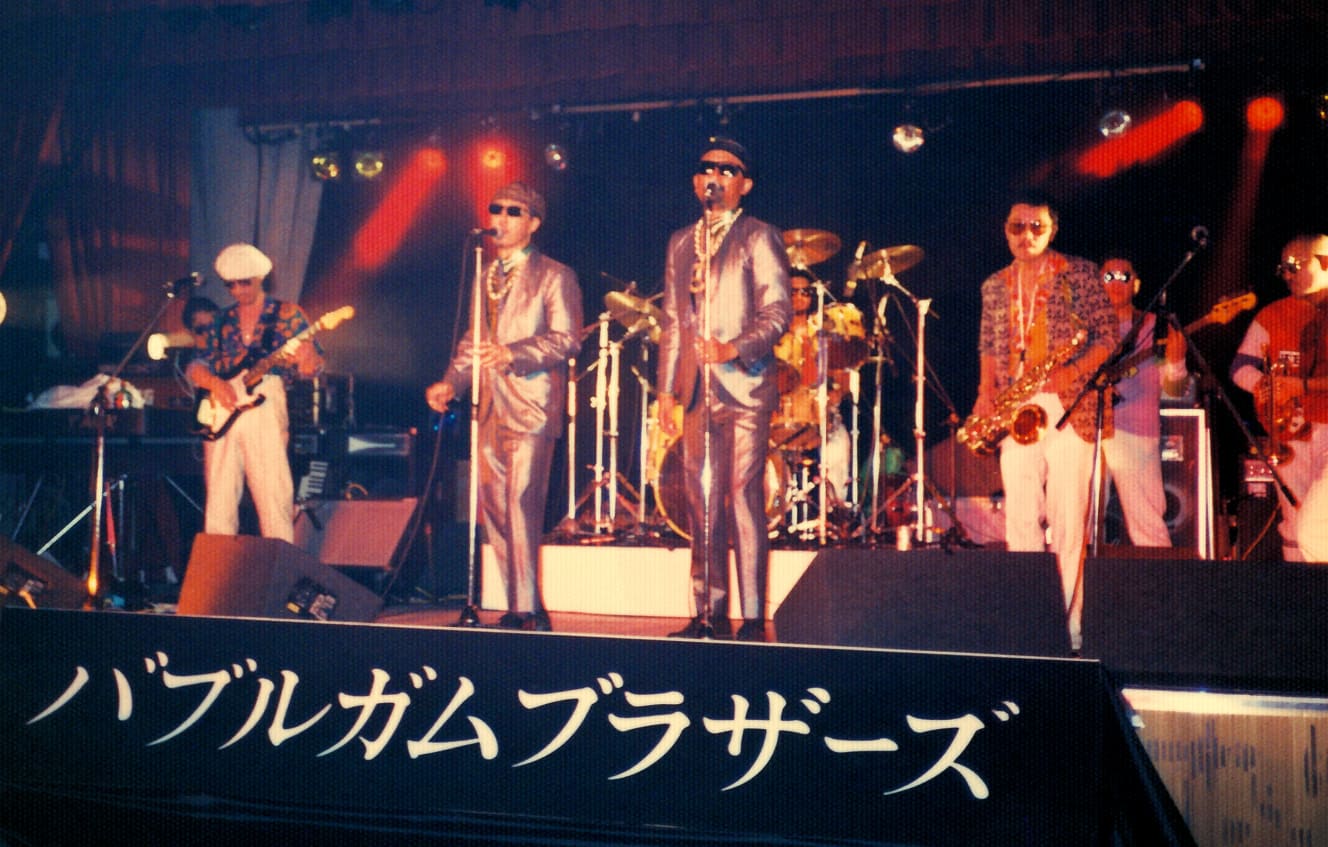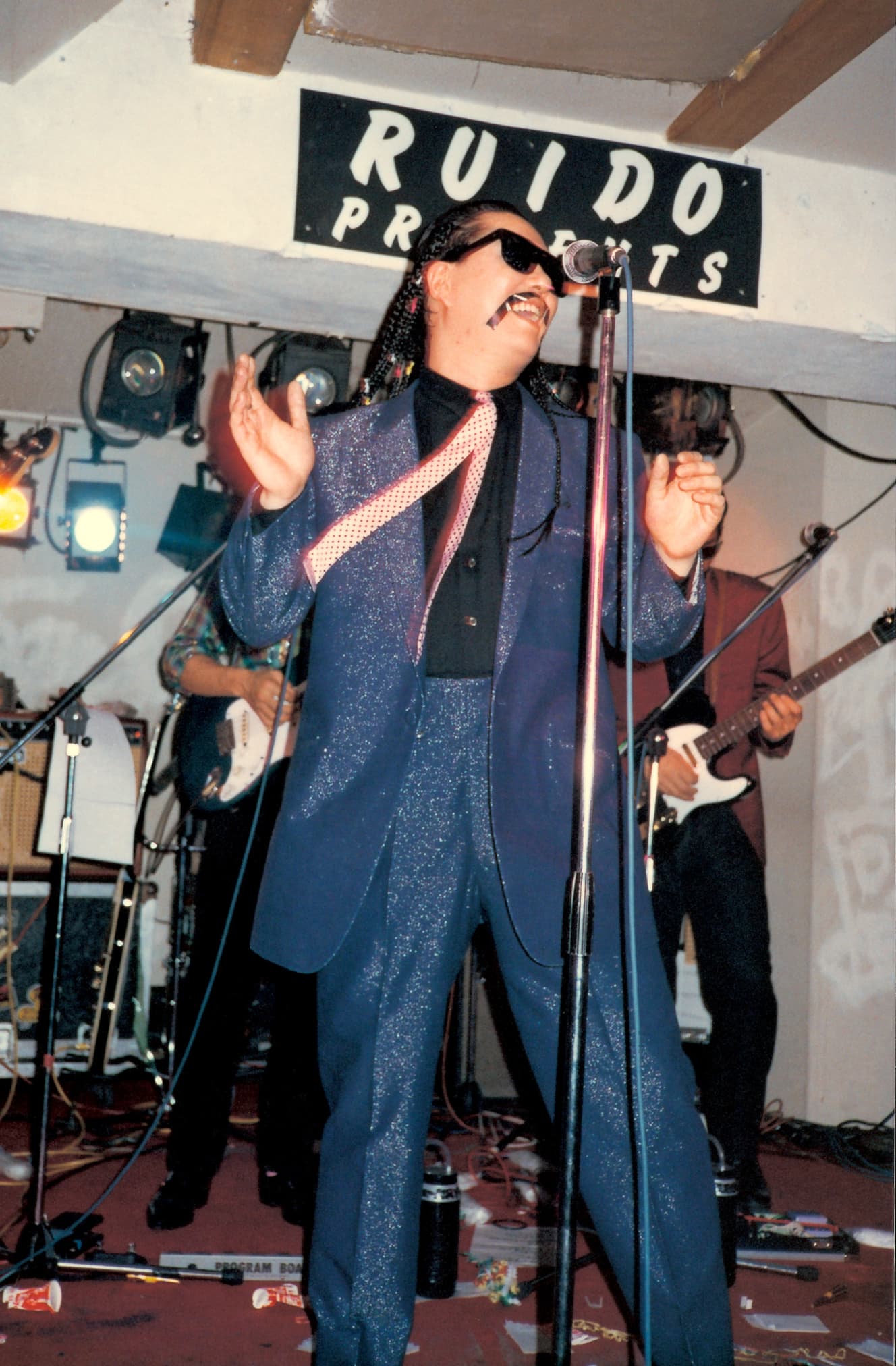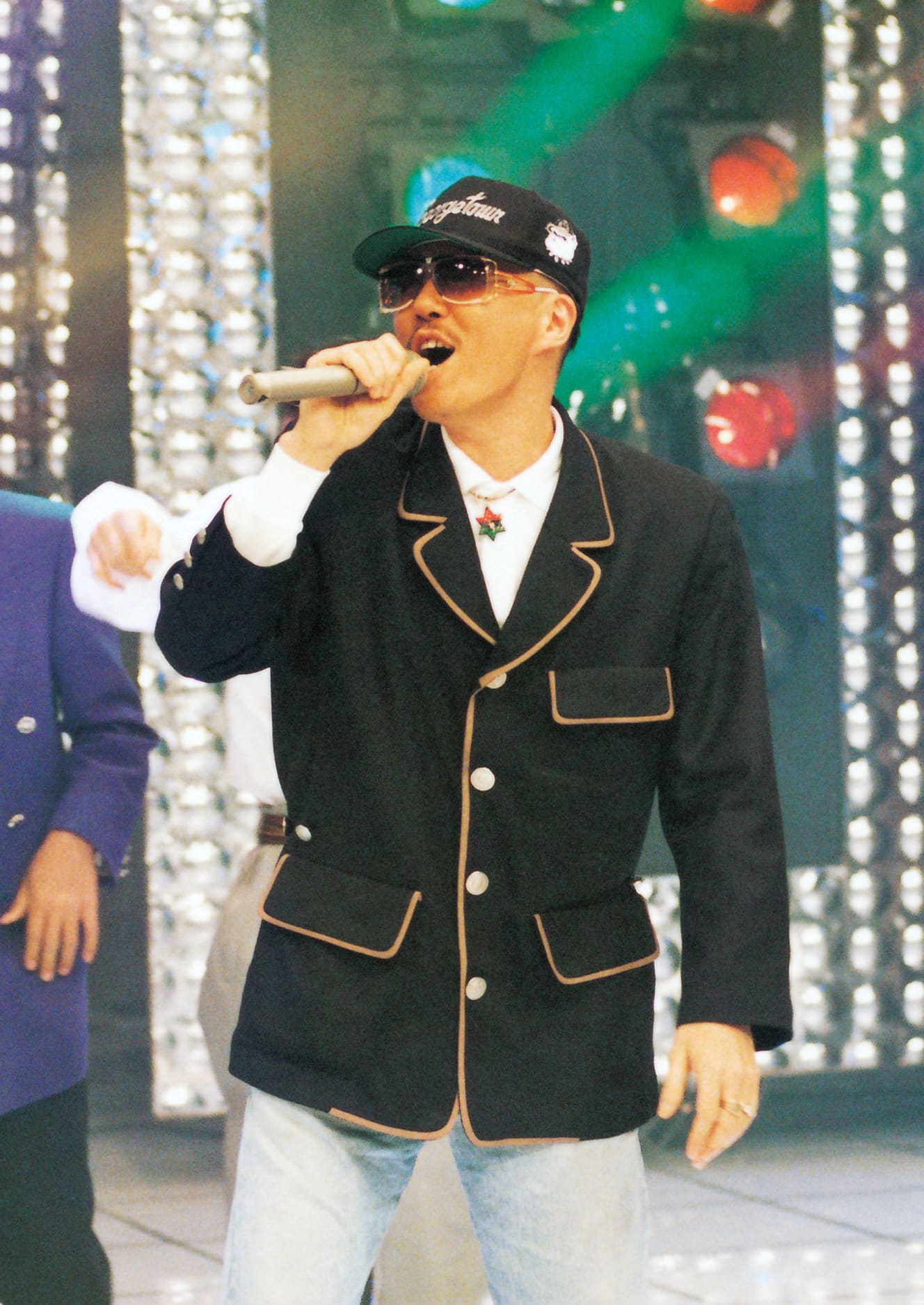Brother Korn Reveals Tunnels Were Key to the Success of “WON’T BE LONG”!
Special Interview] "Father of Roppongi" talks about his "Memoirs of the Entertainment World" Part 1: How a high school student who fell in love with disco created a masterpiece that sold 1.7 million copies!

“I was watching celebrities from the main floor.”
In the late ’80s to early ’90s, Japan was enveloped in an extraordinary heat. Just before the bubble economy took off, the Bubblegum Brothers were formed, and their signature song WON’T BE LONG sold around 1.7 million copies. Brother Korn (69), who was known as the “Father of Roppongi” and used to hit the night streets with Tunnels and RIKACO (59), reflecting on a life spent “swimming in the bubble,” looked back at those years as he approached his 70th birthday.
“I first went to a disco in my third year of middle school. Disco had a nighttime image, but in the ’60s and ’70s, discos operated from around noon to 10 PM. Technically, middle school students weren’t allowed in, but if I entered in casual clothes during the day, I wouldn’t get caught, so I secretly sneaked in and danced all day. Back then, I frequently went to The Other and GET in Shinjuku. Once I became a high school student, I started stretching my limits and visited Nepentha and Tama Tsubaki in Roppongi.”
He spent all his part-time job earnings on entry fees and brand clothing. As he became recognized by the staff and owners, he was invited to join their post-business meals. Korn, who would watch celebrities appear as customers from the main floor of the disco, eventually found himself on stage.
“My appearance on the show Tobidase Monomane Daisakusen (on Fuji TV) was the turning point. At that time, no one was doing an impression of Antonio Inoki, and it became a hit, leading to me becoming the assistant for Ano ne no ne (the show’s hosts). I learned the ins and outs of the entertainment industry while carrying their bags and visiting TV stations.”
After his early struggles, Korn started performing impressions and singing at live houses and show pubs such as Shinjuku Ruid and Kon. At Kon, a show pub near Shinjuku Gyoen, young comedians like Croquette (65), Ishii Lasalle (69), and Azuma Sonmana (67) were working hard and improving. It was also where he met Tunnels. They had seen him on Tobidase Monomane Daisakusen, and Kenbu Kinashi (63) approached him, saying, “Aren’t you the one who does Antonio Inoki’s impressions?” and they quickly became friends. This was when Korn was 25, and Takashima and Takaaki Ishibashi (63) were both 20.
After a while of working solo, Korn formed the Bubblegum Brothers with Brother Tom (69) in ’83.
“I had been friends with Tom for a while, and we both knew each other as comedians and musicians. One day, Tom said he wanted to leave his talent agency, and I suggested, ‘Well, how about we make music together?’ He wanted to move beyond being a comedian and pursue music, so we quickly agreed.”
Ruid became a gathering place for industry insiders, and after three years of breaking records with packed crowds at every stage, the duo made their major debut in ’85 with Wasureji no Every Night. Then, in ’90, they released BORN TO BE FUNKY, which included their hit WON’T BE LONG.
The turning point was All Night Fuji.
The song, which eventually sold 1.7 million copies and became a hit, initially struggled for a year and a half after its release. The turning point came when Tonnelluzu (The Two Top Stars) regularly appeared on All Night Fuji (Fuji TV).
“I had been close to Ken’ken (Kenji Inaba) and (Takahashi) Takaaki (63) ever since we met at Kon and had been invited to appear on All Night Fuji from time to time. I even appeared in the final episode of March ’91, where the two of them, Ken and Takaaki, said, ‘Kon-chan, let’s play that song!’ It wasn’t planned at all, but the studio on that day was a chaotic frenzy (laughs). When WON’T BE LONG played, all the performers started dancing, and ended up playing three times.”
Even though All Night Fuji aired late at night, it was an incredibly popular show, with a peak viewership rating of over 7%. The impact of playing the song repeatedly during the final episode was immense. As soon as the live broadcast ended, Fuji TV received a flood of inquiries about WON’T BE LONG.
“The phone calls asking, ‘What’s the name of that song?’ or ‘Who sings that song?’ kept ringing through the night, and the lines reportedly went down. Since that final All Night Fuji episode, WON’T BE LONG started selling explosively. It went head-to-head with other major hits from that year like CHAGE&ASKA’s SAY YES and KAN’s Ai wa Katsu, ranking high in sales. We received a flood of offers to appear on television shows, and suddenly, 40 million yen in royalties came in, and I realized that I had finally made it. That song seeing the light of day was all thanks to Tonnelluzu.”
The momentum of the hit was further fueled by the 42nd NHK Kouhaku Uta Gassen at the end of ’91.
“At the time, we were so rebellious that we used to say, ‘We’re never going to appear on Kouhaku.’ I had this image of myself where I would cover the camera lenses even when I appeared on TV, so I never thought NHK would invite us. So, in late ’91, I was in New York.
Then, the band HOUND DOG, who was scheduled to perform, had a dispute over their setlist with the production team and dropped out. Just a week before the broadcast, we got a call asking if we would appear. ‘You need to decide by the end of today—what’s it going to be?’ The producer from the record company asked. Without hesitation, we immediately answered, ‘Of course we’ll do it!’ (laughs).”
After WON’T BE LONG became a mega-hit and the appearance on Kouhaku, Bubblegum Brothers solidified their position as popular artists. They were also invited to appear on various variety shows, such as Late Night Play DX (TV Tokyo) and Men 2 (Men’s Affairs) (Fuji TV). At the same time, the chaotic days of heading out to Roppongi, clutching bundles of cash with big-name celebrities they had met on the night scene, began.
The behind-the-scenes of their 1.7 million record sales and their relationships with major celebrities are documented in the autobiography WON’T BE LONG: A Life Swimming in the Bubble (Kodansha), which will be released on May 21!



From the April 18, 2025 issue of “FRIDAY”
PHOTO: Ichiro Takatsuka (1st photo)